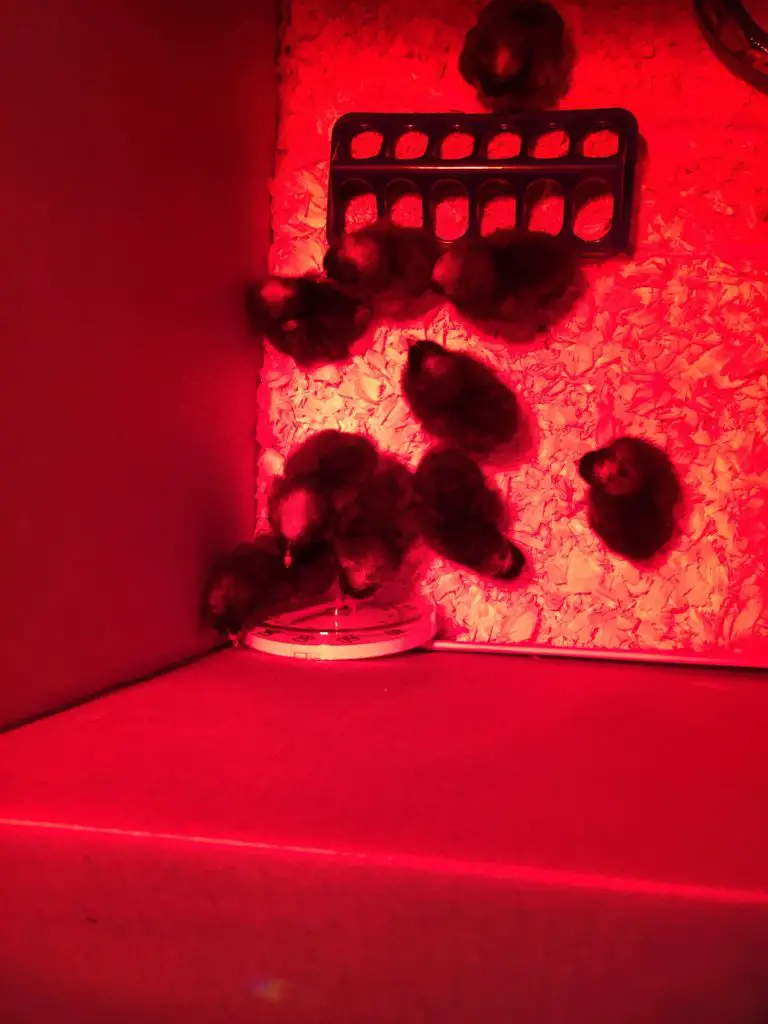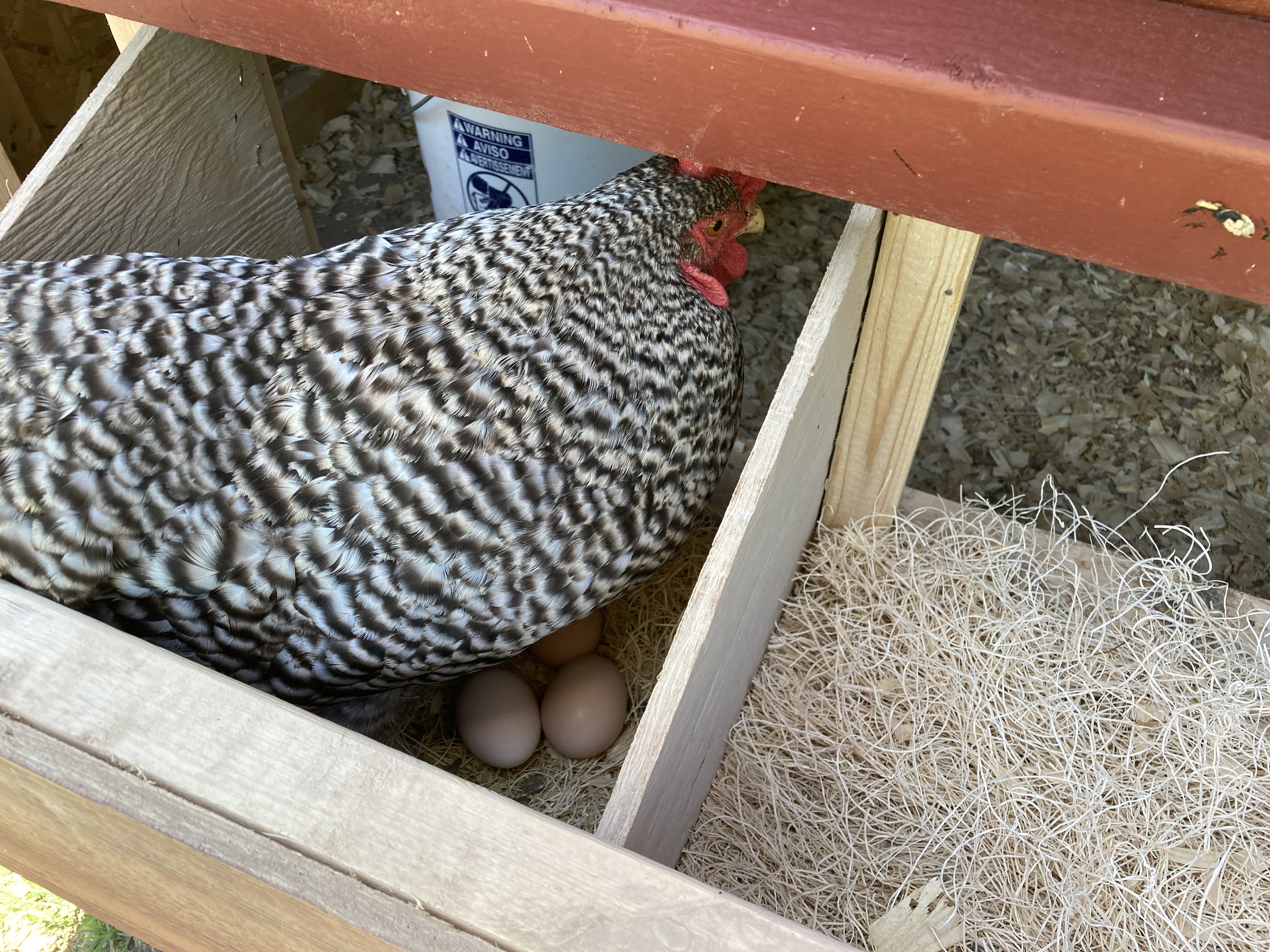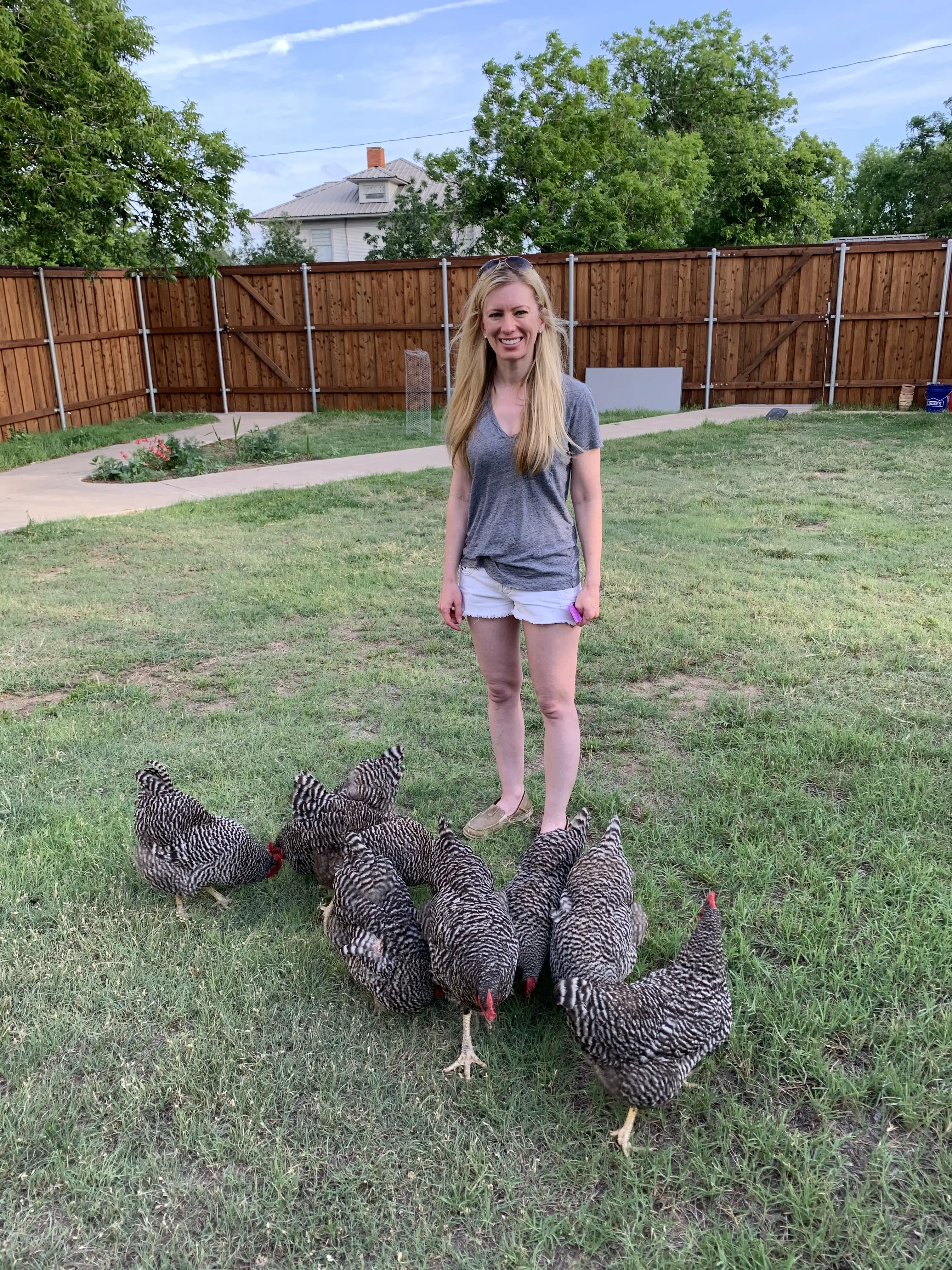People who have never been around chickens are sometimes afraid of being bitten by the birds. Once you understand a chicken’s behavior and how they use their beak you will learn that this does not need to be a concern you have with backyard chickens.
Chickens peck to investigate their surroundings and while looking for food, but they are unable to “bite” you since they don’t have teeth. A chicken’s beak is hard and is capable of breaking skin if they feel threatened. However, tame chickens don’t typically peck at humans, including kids, or pets.
Keep reading to find out in what instances you can get pecked by a chicken and how much it hurts.
Chickens Peck to Investigate Their Surroundings
Chickens investigate their surroundings by pecking with their beaks. This behavior is learned while in the egg since the chicks will use their egg tooth to peck out of the shell. The egg tooth is on the tip of a chick’s beak and is lost soon after hatching. As chicks grown up, they will use their beak to peck at different food sources, like seeds, plants, and feed, in order to learn their textures and test which ones are good to eat.
When my chicks were a few days old and still in their brooder, I would hear them pecking on the thermometer throughout the day. I’m not sure if they saw their reflections in the plastic or were just intrigued by the device in their home that didn’t seem to have any purpose as far as they were concerned since it didn’t provide food, water, or warmth.

A chicken’s beak is used to break apart food into smaller pieces while eating. A mother hen will tidbit, or pick up and drop food, for her chicks. This process will help break the food into smaller pieces and calls attention to the food she has for the chicks.
Chickens also use their beaks to adjust bedding or nesting material. Some chickens will pick up bedding with their beak, readjusting the bedding and putting it on their backs.
Another use for a chicken’s beak is to spread oil from their uropygial gland near their tail while preening. A chicken will get oil from this gland on their beak and run it through their feathers. This oil helps keep a chickens feathers clean and pulling the beak through their feathers removes any dirt or mites that are on the feathers.
As you can see, a chicken is able to do many activities with her beak. The beak contains nerves that respond to pressure, allowing a chicken to engage in all these activities with precision.
Chickens Will Peck at Blood
The one instance where you will be pecked by a chicken is if you have blood or a scab on your body that is within sight and reach of the chicken.
Chickens are omnivores, meaning they will eat meat or flesh if given the opportunity. Chickens are drawn to red colored items, including blood and scabs. Once a chicken has noticed there is blood, the other chickens will follow suit and peck at the blood too.
Chickens are unlike other backyard animals as they are somewhat prone to cannibalism. The first stages of cannibalism can include egg eating, and progress to picking at each other’s flesh and any open wounds, to eventually pecking to death a weak member of the flock. If you have a chicken that is incredibly aggressive to her flockmates, you might consider rehoming this chicken before you have a crime scene on your hands.
A few days after my cat bit my leg and it had scabbed over I was outside with the chickens. One of the chickens pecked at my scab and it hurt! I shooed her away but about a minute later I saw another chicken eyeing my scab. They were intent on investigating my scab and getting to the blood. It was honestly a bit terrifying, but now I wear pants if I have any wound on my leg when I go see my chickens. (My chickens have also been known to peck at my freckles too, but this doesn’t hurt and when they realize there is nothing to be eaten, they will leave and find something else to peck.)
Chickens will also peck at painted toenails. They are intrigued by the colors on the nails and will peck at your toes. Don't worry, this won't hurt; although, it might tickle. 😊
Chickens Can Peck Your Hand While Feeding
Chickens eat by pecking at food to gather it in their mouths before they swallow. In this process, their beak can come in contact with the vehicle that provides their food.
Generally, chickens have incredible eye-beak coordination and can eat a mosquito off my leg without me even feeling their beak. However, when you are hand feeding your chickens some tasty treats, they can get very excited and their coordination goes out the window!
I have been pecked many times by my chickens when I hand feed them. It’s not painful, it usually just startles me because I never know if or when they will peck my hand by accident. Chickens will not try to eat your hand, they just want to eat what is held in your hand.
Chickens have amazing eyesight and will not peck randomly. If you are hand feeding them seeds, they are able to clearly see the seeds in your hands and will not peck at your fingers.
However, if you are wearing any jewelry, like rings or a watch, while hand feeding they will most likely peck at it to investigate the shiny material.
Broody Hen Might Peck if Disturbed
If a hen has gone broody in her nesting box, you might be pecked if you reach into the box and disturb her. She will probably give you a good growl first, though, as a warning.
I have heard before of a broody hen getting a bit vicious when she’s brooding and will peck, growl, and flap her wings if she is disturbed while on the nest. My chickens will usually let me push them off the nest with no issues, but I do have one hen who will growl a bit before letting me pick her up.

Broodiness is when a chicken wants to sit on a nest all day to hatch the eggs. If you don’t have fertile eggs, this behavior is not necessary and can actually lead to some problems within your flock. First, a broody hen will slow down or stop laying eggs since her body thinks she needs to be sitting on a nest. Secondly, a broody hen might decide to brood on the preferred nesting box of the flock, which can cause some interpersonal issues between the hens. Last, broodiness can be contagious between chickens. When one hen sees another sitting on a nest, she might decide to do the same thing, causing a snowball effect of lowered egg production in your flock and fighting over the nesting boxes.
Generally, for most people who raise backyard chickens, they are unlikely to be pecked by a broody hen since these chickens are typically tame. When chickens are handled quite a bit as chicks and regularly fed tasty treats from humans, they have no incentive to be aggressive to humans.
Chickens Will Peck When They Feel Threatened
Another instance where a chicken will peck is if they feel threatened. One way for a chicken to defend herself is to peck at her aggressor.
Chickens will peck at each other if there is a squabble in the flock. This is why you need to be aware if there is a bully situation between your chickens. Chickens are capable of pecking at each other’s flesh hard enough to draw blood. In really severe cases of aggression, this blood shed can eventually result in death.
Roosters have a reputation for being aggressive, but some hens can also be aggressive. If your flock does not have a rooster, typically the head hen will fill that gap in the pecking order and might become more aggressive than the other chickens in the flock. This is not necessarily a bad thing, since this behavior can be used to protect the chickens from predators.
Typically, chickens get along just fine with other pets in your backyard. However, a chicken will defend herself if she feels threatened, including pecking at the aggressor, squawking loudly, flapping her wings against the aggressor, and using her claws/spurs to fight off an attack. If multiple chickens get involved in the fight, there will be even more pecking, squawking, flapping, and clawing.
It’s important to teach kids to be gentle with chickens. This not only protects the chickens from an overly eager kid’s suffocating squeeze, but protects the child from getting hurt by a chicken who feels threatened. Also, don’t let kids chase chickens through the yard because chickens are known to suffer heart attacks when they become highly stressed.
Closing Thoughts
Chickens are great animals to have in your backyard. Not only do they provide fresh eggs, but they are such a joy to watch with their entertaining antics and their interactions with each other.
Like many other backyard animals, when chickens are treated well and raised around humans and other animals (that don’t want to eat them), they will be fairly friendly. When chickens are not treated well or do not have much interaction with humans, they can loose some of their tameness and might be more prone to peck at humans.
I have been pecked by my chickens countless times and they have never drawn blood. I remember one time an overly eager chicken did clamp down on my finger pretty good, but I think it was because she confused my flesh for the color of the peach that I was hand feeding them!
Just remember that a chicken is still an animal and will defend herself if she feels threatened, but otherwise you should feel comfortable around backyard chickens and not be fearful of getting bitten by one.
-Jamelyn


